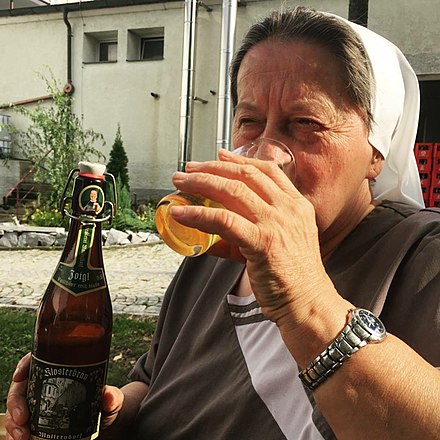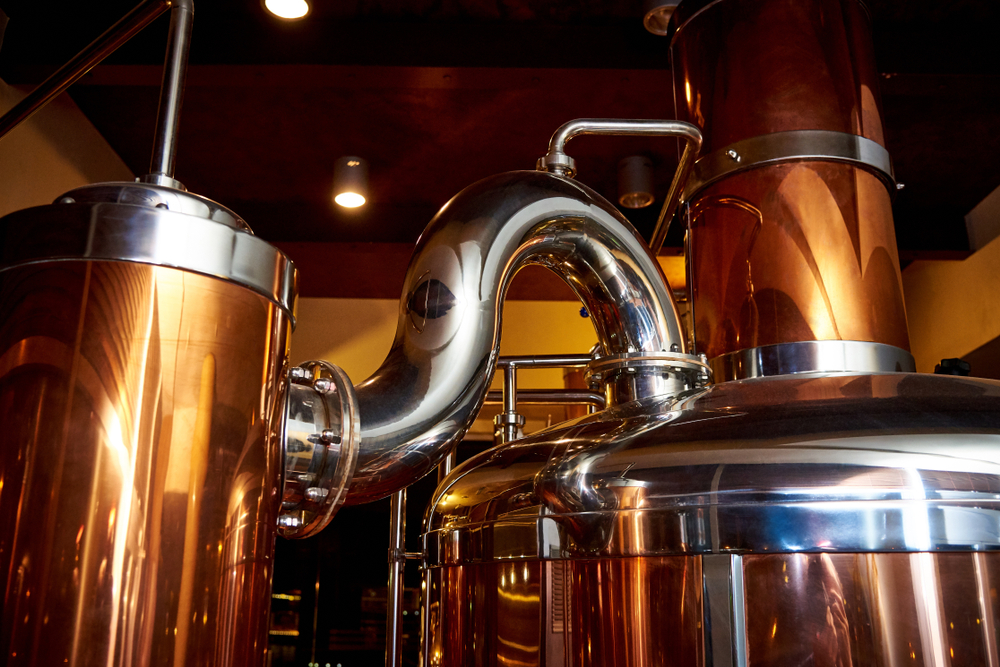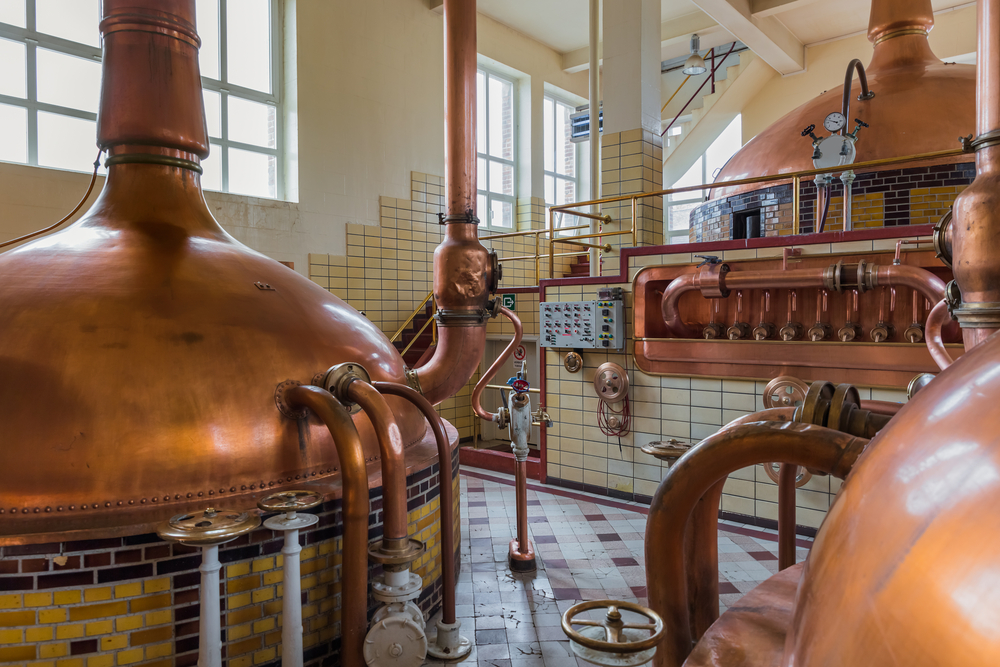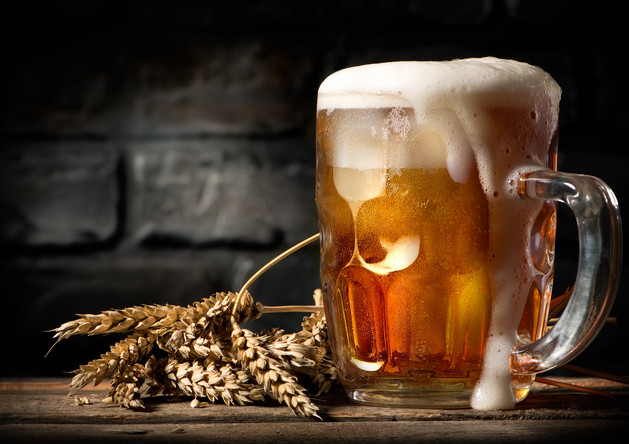
History
"The main obstacles that women continue to face in industry include perceptions of taste, media influence, and preconceived notions about their skill and ability". Headway is being made. Women such as Jill Vaughn and Rebecca Reid have been successful at becoming top brewmasters at Anheuser-Busch, where they developed brands such as Bud Light Platinum, Shock Top and the Straw-Ber-Rita. In 2013, Sara Barton, owner and director of Brewster's Brewery, won the Brewer of the Year award, becoming the first woman to receive the honor bestowed annually by the British Guild of Beer Writers. Emma Gilleland, who heads the supply chain at Marston's Brewery, the leading independent brewer in Britain, was called the most influential brewer in the UK by the BBC. That same year, Annie Johnson won the American Homebrewers Association's Homebrewer of the Year award.
Among Canada's women brewers, are Emily Tipton, co-owner and brewmaster of Boxing Rock Brewing and Kellye Robertson, who began her career at Garrison Brewing before changing to head the brewing team at Spindrift Brewing. In 2015, the BBC′s "100 Women" project, honored Leimin Duong, a Vietnamese-Australian woman, who brews strawberry beer, as one of the most influential women of the year. In Australia, the first all-female brewery in the country, Two Birds Brewing, has won multiple awards for their beers, but in 2016, owners Jayne Lewis and Danielle Allen were honored with the Champion trophy for Medium Australian Brewery by the Australian International Beer Awards.

Perhaps the most noted German brewster is also Bavaria's last mastebrewer nun, Sister Doris Engelhard, who has been plying her craft at Mallersdorf Abbey for over forty years. Other women in the Bavarian beer brewing scene are Sigi Friedmann of Friedmann's Brewery (German: Brauerei Friedmann) in Gräfenberg and the Meinel Sisters, Gisela and Monika of the Meinel-Bräu Brewery in Hof. An de Ryck is one of the few women brewers in Belgium, has run the De Ryck Brewery (Dutch: Brouwerij De Ryck) since the 1970s and has won several awards for beers she has produced.

In many traditional African cultures, beer is still made only by women. In commercial breweries, though women are often partners with their spouses, only about 6 are operated by women brewers. One of these, Apiwe Nxusani-Mawela, is a brewer, brewery owner and the first black South African accredited as a trainer for the Institute of Brewing and Distilling and as a certified beer judge for the South Africa Beer Judging Certification Program. Another is Thea Blom, who began as a chef and then added a craft brewery to her business, Oakes Brew House, and hired brewer Happy Sekanka to create the firm's beers. Josephine "Fina" Uwineza, a restaurateur in Rwanda began evaluating whether opening the first craft beer brewery in the country could be used as a platform to empower women and offer them employment. In 2016, she partnered with the Ontario Craft Brewers Association to explore creating the venture.

In Nepal, as has been done for centuries, women brew raksi, a pungent alcoholic beverage made from rice. It was originally used for ceremonial purposes in Hindu and Buddhist rites, but is such a key part of customary life in the Kathmandu valley, that authorities routinely ignore legal prohibitions against production and consumption. Women traditionally engage in the month-long brewing process and sell their excess raksi to restaurants for their patrons.
More Facts
In Japan, after the commercialization of brewing, sake brewers, known as tōji (Japanese: 杜氏) were for generations, migrants who traveled from brewery to brewery and worked during the winter brewing season. As sake sales began to plummet and the number of trained tōji declined, owners began to take on the tasks of brewing themselves. Though still a male-dominated field, as of 2015, there are approximately 20 female tōji brewing in Japan and The Women's Sake Industry Group has been formed to increase their numbers. Emi Machida (Japanese: 町田恵美さん) has run her family's 130-year-old brewery for ten years as the masterbrewer and has won seven gold medals for her sake from the Annual Japan Sake Awards. Miho Imada (Japanese: みほ いまだ), another owner-brewer, is noted for her Hiroshima-style junmai ginjo method which uses very soft water, low temperatures and a slow fermentation process to bring out the fruity flavors and aromatics.
In Latin America, chicha is still widely produced by women and consumed daily by adults and children, as it typically has a low alcohol content. In Ecuador women harvest yucca, boil the roots, pound it into a paste and then chew the paste, in much the same way as their ancestors did, to break down the starches and begin the fermentation process. Peruvian women make their version of chicha using the same method, but with corn. In Brazil, Argentina and Paraguay, among Amazonian Indians, chicha, made from corn, or algarroba beer made from carob seed, as well as beer produced from mixing corn or manioc with apples, melons, papaya, pears, pumpkin, quince, strawberries and sweet potatoes are brewed by women. Bolivian women make beer from roasted barley, which is then chewed to begin the fermentation process and is served daily as a dietary supplement.
The Pink Boots Society is an organization that supports women who work in the beer industry. It was founded by Teri Farhrendorf, who was in turn inspired by an early brewmaster, Carol Stoudt, who launched her own brewery in 1987. There are Pink Boots Society chapters in Canada, Australia and the United States. FemAle is another organization which supports the growth of women in brewing. In Sweden, they produced a beer named "We Can Do It", modeled on the iconic Rosie the Riveter poster by Westinghouse in 2015. The goal was to create a beer made by women, which was not fruity or mild, but rather based on a scientific review of what women actually wanted to drink.
Links:
https://en.wikipedia.org/wiki/Jill_Vaughn
https://en.wikipedia.org/wiki/Sister_Doris_Engelhard
https://en.wikipedia.org/wiki/Apiwe_Nxusani-Mawela
https://en.wikipedia.org/wiki/Happy_Sekanka
https://en.wikipedia.org/wiki/Emi_Machida
Contact Us
474 Conifer Drive
Seattle, WA 98109
info@hillardsbeer.com
+1 2356-604-9209